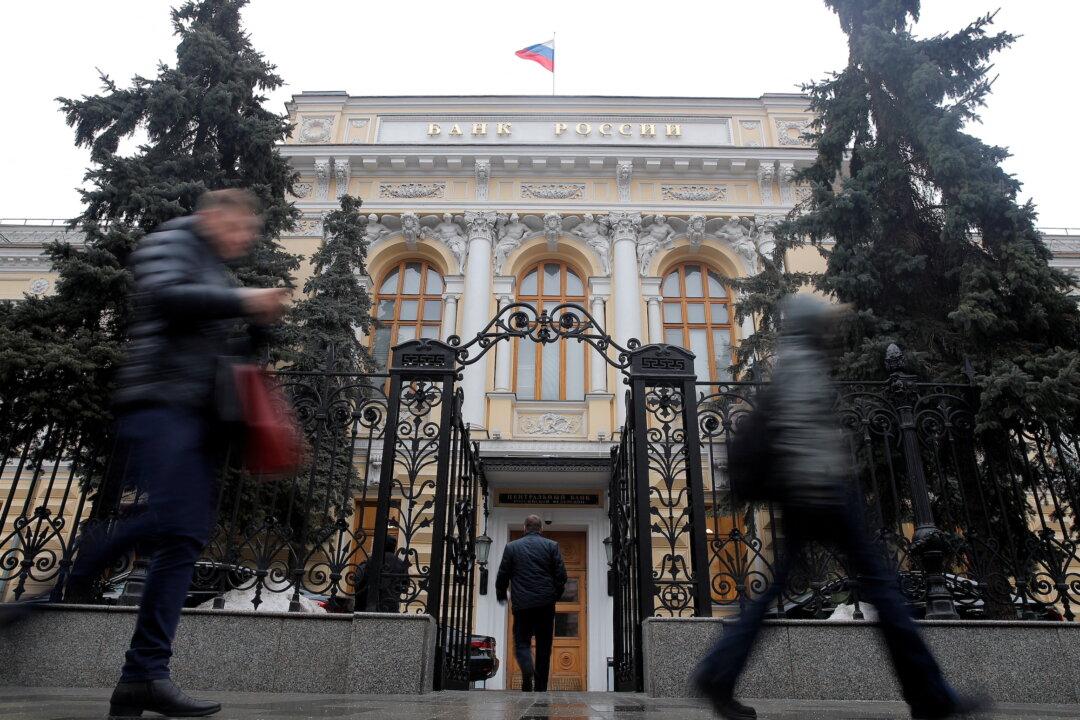Russia restarted trading in federal government bonds (OFZ) on March 21, almost a month after the Moscow Exchange was shut down on Feb. 25 following the invasion of Ukraine.
An open auction for all OFZ issues was scheduled to be held from 10 to 11 a.m. Moscow Time on March 21, the Bank of Russia said in a March 18 press release. From 1 to 5 p.m., trading sessions were scheduled to be conducted in a normal mode. Short selling, however, was banned.





